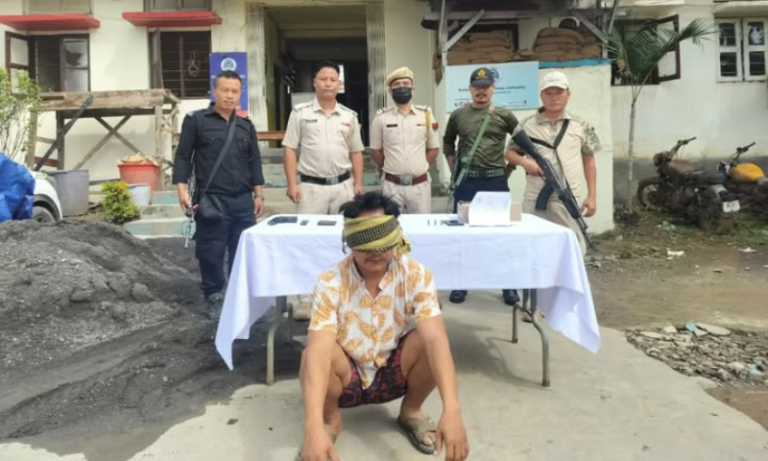Manipur Congress MP Criticizes AFSPA Reimposition Amid Unrest: What This Means for the State
Summary
In light of escalating unrest in Manipur, Congress MP Angomcha Bimol Akoijam has voiced strong opposition to the central government’s recent decision to reimpose the Armed Forces Special Powers Act (AFSPA) in select areas. The MP argues that while the law has a history of use in the state, this instance marks a shift in authority, with the central government acting independently. The MP’s remarks underscore a need for sustainable, peace-driven solutions instead of relying solely on military measures.
In-Depth Analysis
The Role and History of AFSPA in Manipur
The Armed Forces Special Powers Act (AFSPA), enacted in Manipur and other northeastern states, grants extensive authority to the military in regions deemed “disturbed.” Initially established as a way to address insurgencies and maintain public order, AFSPA has faced backlash from communities and human rights activists. It allows the military to arrest without a warrant, conduct searches, and, in some cases, even use force as necessary. Although effective in counterinsurgency measures, AFSPA’s broad powers have led to various instances of alleged human rights abuses.
Central Government’s Move Sparks Controversy
In the past, the state government held authority over AFSPA’s imposition. However, this recent decision was made solely by the central government, reflecting an increasing shift of control in regional matters. MP Akoijam has criticized this development, suggesting that unilateral decisions by the central government bypassing state-level consultation could undermine local governance and escalate tensions.
Why Is AFSPA Reimposed Now?
Ongoing unrest, including ethnic clashes and violence in certain regions, has spurred calls for heightened security. The government’s response has been to reinforce military presence under AFSPA, especially in areas with recent violent incidents. The central government’s move is seen as an attempt to stabilize these conflict-prone zones quickly. However, MP Akoijam and others have argued that merely reinstating military powers without addressing the root causes of the unrest is unlikely to yield lasting peace.
Ethnic Divisions and the Call for Political Resolution
Manipur’s unrest has deep roots, often tied to ethnic and community-based divisions. The Meitei and Kuki communities, in particular, have seen an intensification of long-standing grievances, exacerbated by recent incidents. MP Akoijam emphasized the need for political dialogue and mediation over forceful intervention, arguing that a militarized approach could worsen ethnic tensions rather than resolve them.
The Debate Over AFSPA’s Impact on Civilian Life
For many in Manipur, AFSPA has a controversial reputation, tied to stories of oppression and fear. Its provisions grant the armed forces wide latitude to act without typical oversight, fostering distrust among civilians. Though meant to protect citizens and preserve peace, the law’s enactment has often been seen as a heavy-handed approach to complex social issues. The reinstatement of AFSPA has therefore reignited debate over whether it is an appropriate or effective response to the region’s unrest.
Can Dialogue Succeed Where AFSPA Might Fail?
MP Akoijam’s remarks reflect a growing sentiment that sustainable peace requires political, not just military, intervention. Drawing from historical examples where negotiations helped resolve conflicts, he argues that Manipur needs a government committed to dialogue with community leaders and representatives from various ethnic groups. Many believe that only through understanding and compromise can a path forward be charted for Manipur.
Conclusion: The Path Forward for Manipur
The reinstatement of AFSPA in Manipur’s troubled regions may provide temporary security, but the lingering issues require a more nuanced approach. Lasting peace in Manipur might depend on leaders who prioritize dialogue, mutual respect, and a shared vision for the state’s future, over the imposition of military law.
FAQs
- What is AFSPA, and why is it controversial?
AFSPA grants military forces sweeping powers in “disturbed areas,” often criticized for enabling human rights abuses. - Why was AFSPA reimposed in Manipur recently?
Rising unrest and violence have led the central government to reauthorize AFSPA in certain regions to stabilize the situation. - What are MP Akoijam’s main concerns about AFSPA?
He argues AFSPA is a short-term solution and stresses the need for genuine political efforts to address long-standing tensions. - How does AFSPA impact civilian life?
AFSPA allows military actions without typical legal oversight, leading to distrust and fear among civilians. - Is there an alternative to AFSPA for peace in Manipur?
MP Akoijam suggests dialogue and political resolution as essential for sustainable peace over military control.

